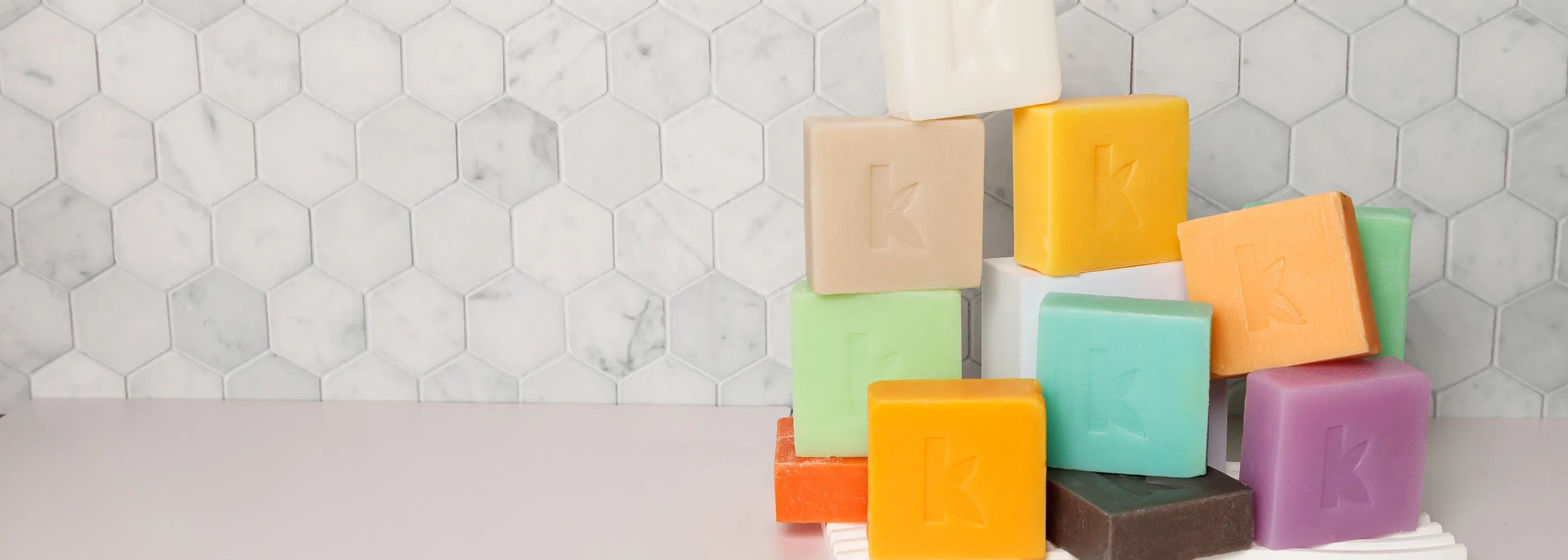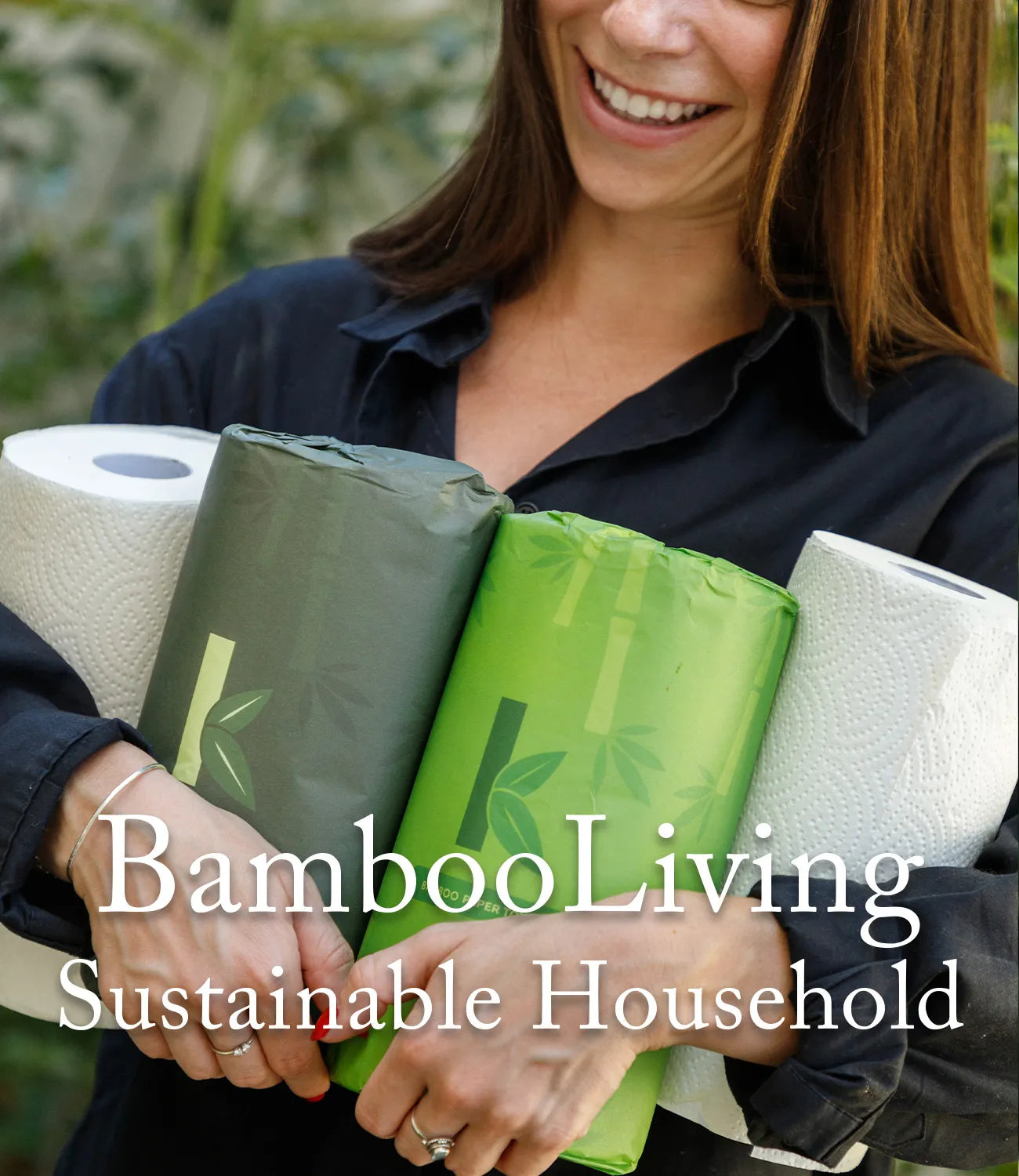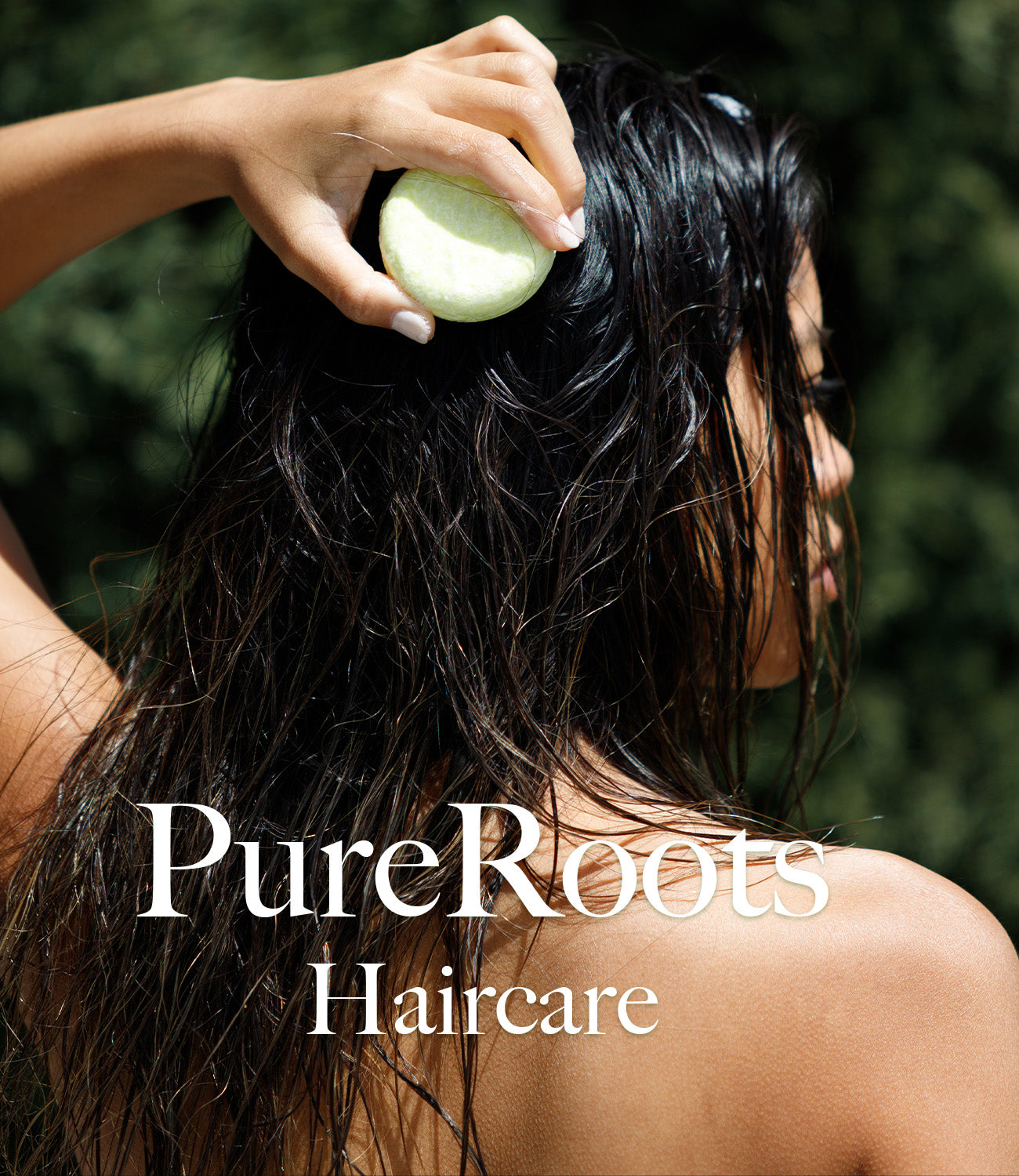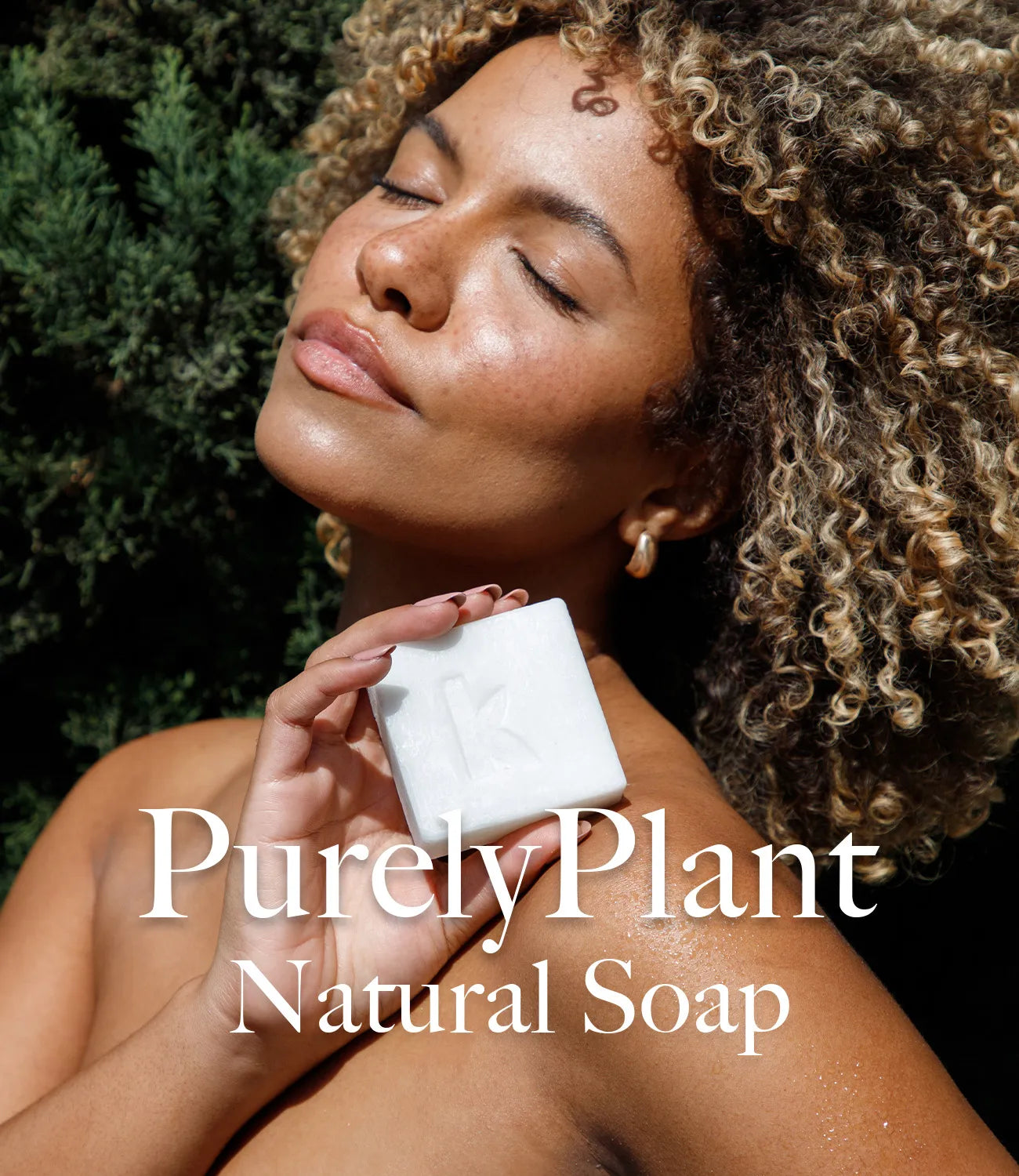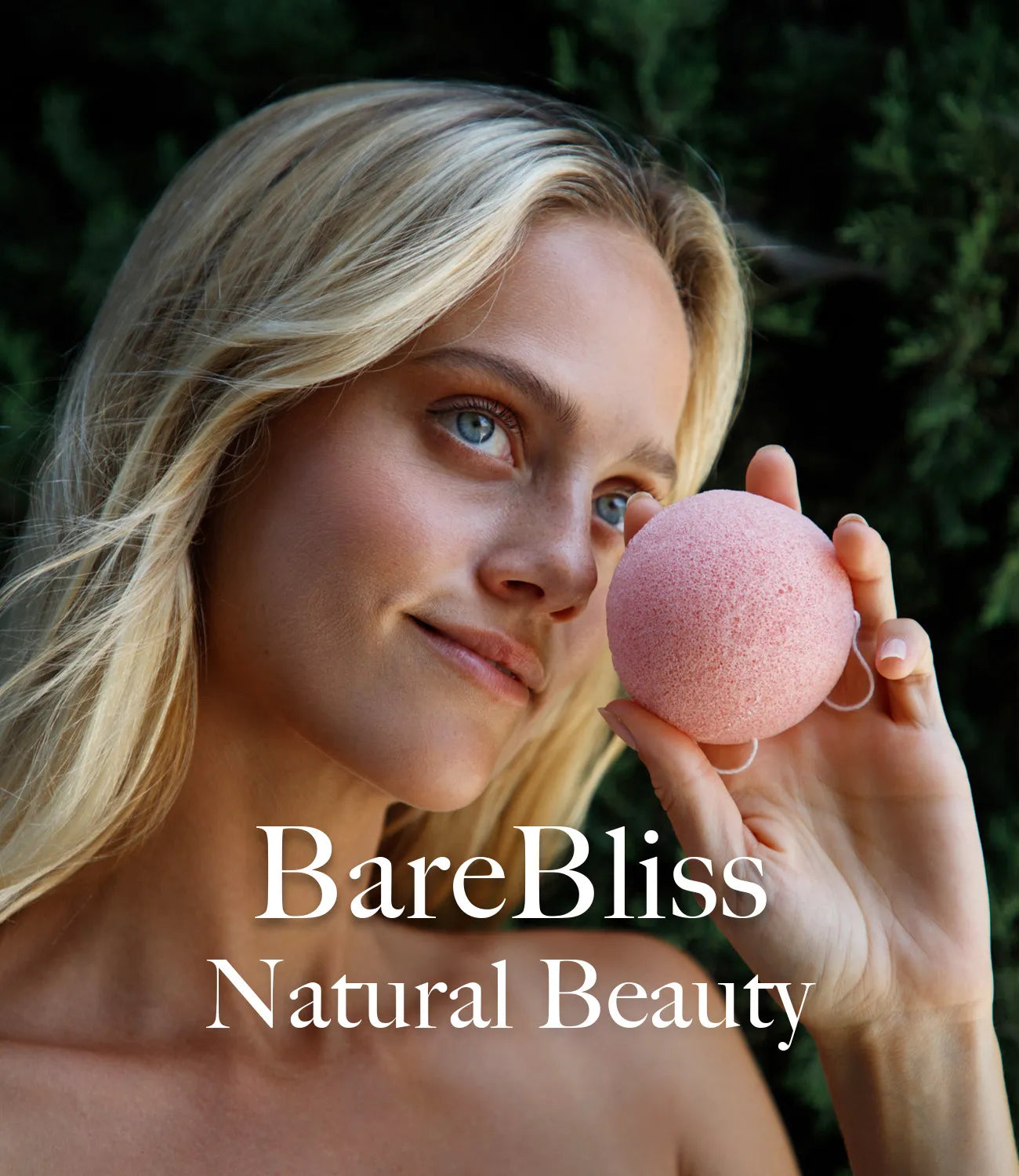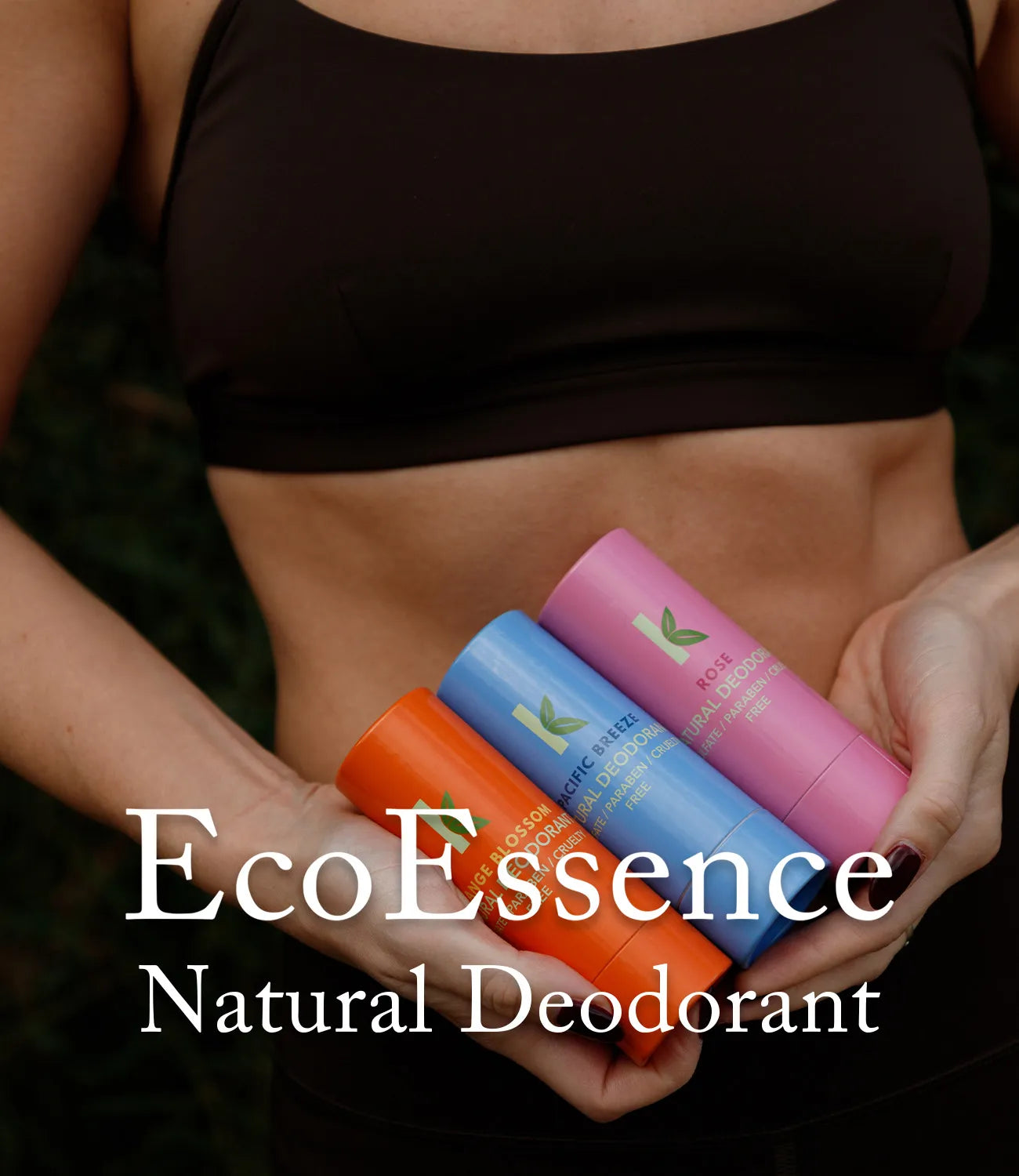What Is Natural Soap?
When it comes to the everyday ritual of cleansing, the choice of soap may seem like a straightforward one. However, behind the appealing packaging and alluring scents of your average store-bought soap lies a hidden truth: it's anything but natural. These mass-produced bars often contain a cocktail of synthetic additives and chemicals that can leave your skin feeling less than pampered. Natural soap, on the other hand, represents a return to simplicity and purity in skincare. It's a product crafted with a commitment to harnessing the power of natural ingredients while leaving out the harsh chemicals found in many commercial alternatives. In this blog, we'll embark on a journey to unveil the essence of natural soap, exploring what sets it apart from conventional options and why making the switch to natural soap is a small yet significant act of self-care and environmental responsibility. Get ready to rediscover the beauty of mindful cleansing and sustainable skincare.
What Is Natural Soap Made Of?
Natural soap is a testament to the age-old art of soapmaking, which relies on a simple yet effective combination of natural ingredients. Unlike commercial soaps that often incorporate a host of synthetic additives, natural soap prides itself on its clean and minimalistic composition.
At its core, natural soap is primarily made of two key components:
Natural Oils and Fats
The heart of natural soap lies in natural oils and fats, such as olive oil, coconut oil, palm oil, and shea butter. These oils are carefully selected for their unique properties and are rich in vitamins and fatty acids that nourish and hydrate the skin. Each oil brings its own benefits to the soap, contributing to lather, moisturization, and cleansing.
Lye (Sodium Hydroxide)
Lye, a strong alkaline substance, is an essential ingredient in soapmaking. It plays a pivotal role in a chemical process known as saponification. During saponification, lye interacts with the natural oils and fats, transforming them into soap. While lye is a caustic substance in its pure form, it is entirely consumed in the chemical reaction, leaving behind a gentle and skin-friendly product.
In addition to these core ingredients, natural soap may also incorporate other elements to enhance its properties:
Natural Fragrances
Essential oils extracted from plants are commonly used to add natural scents to the soap. Lavender, eucalyptus, citrus, and mint are just a few examples of the delightful fragrances that can be infused into natural soap.
Natural Colorants
For those seeking aesthetically pleasing soap, natural colorants derived from sources like herbs, spices, and clays are used to create subtle, earthy hues.
Exfoliants and Additives
Some natural soaps include natural exfoliants like oatmeal, coffee grounds, or poppy seeds, providing gentle scrubbing to help remove dead skin cells.
The beauty of natural soap lies not only in its ingredient list but also in the artisanal craftsmanship that goes into its creation. Soap makers carefully balance these elements to create unique formulations that cater to different skin types and preferences.
By embracing the simplicity of natural ingredients and sidestepping the harsh chemicals found in many commercial soaps, natural soap offers a cleaner, gentler, and more sustainable path to skincare. It's a choice that not only nurtures your skin but also respects the environment, making it a win-win for both you and the planet.
What Else Is A Natural Soap
Now that we understand a little bit of the difference in ingredients used for synthetic soap. Here are some key characteristics and components of natural soap:
- Natural Ingredients: Natural soap is crafted using ingredients sourced from nature. These ingredients can include vegetable oils (such as olive oil, coconut oil, or palm oil), plant-based butters (like shea or cocoa butter), essential oils for fragrance, and natural colorants (e.g., herbs, spices, or clays). These components are chosen for their skin-friendly properties.
- Lack of Harsh Chemicals: Natural soap is free from harsh synthetic chemicals often found in mass-produced soaps. This includes detergents, sulfates, parabens, artificial fragrances, and synthetic preservatives, which can be harsh on the skin and potentially harmful to the environment.
- Cold Process or Hot Process: Natural soap is typically made using traditional soap-making methods, such as cold process or hot process. These methods involve carefully blending oils and lye (sodium hydroxide) to create soap through a chemical reaction known as saponification. The soap maker has control over the ingredients and can customize the soap for various skin types.
- Gentle and Moisturizing: Natural soap tends to be gentle and moisturizing, thanks to the natural oils and butters used in its production. It often contains glycerin, a natural byproduct of the saponification process, which helps retain moisture in the skin.
- Variety and Customization: Natural soap makers often offer a wide variety of scents, textures, and formulations to cater to different skin types and preferences. You can find natural soaps with various natural fragrances and even exfoliants like oatmeal or poppy seeds.
- Environmentally Friendly: Many natural soap makers are committed to environmentally friendly practices. They may use sustainable ingredients, biodegradable packaging, and avoid animal testing.
What Natural Soaps Does Seek Bamboo Sell?
Ginger Soap
Spice up your shower routine with our Ginger Soap! Infused with the invigorating essence of natural ginger, this soap not only cleanses but revitalizes your senses. Its rich lather and spicy aroma make it a refreshing choice for all skin types. Packed with antioxidants, it leaves your skin feeling soft, smooth, and rejuvenated. Plus, it's eco-friendly and free from harsh chemicals, aligning perfectly with your green lifestyle. Get ready to turn your daily cleanse into an energizing spa experience!
Squeaky Clean FAQs
Bubbling with Answers
What exactly is natural soap, and how is it different from regular soap?
Natural soap is made primarily from natural ingredients like oils and lye (sodium hydroxide), without synthetic additives or harsh chemicals. It's a gentler, more skin-friendly alternative to commercial soaps, which often contain synthetic fragrances and detergents.
Is natural soap as effective at cleaning as commercial soap?
Yes, natural soap is just as effective at cleansing when used correctly. It lathers well and leaves your skin feeling clean without the need for harsh detergents.
What are the key ingredients in natural soap?
Natural soap is primarily made from natural oils (e.g., olive oil, coconut oil) and lye (sodium hydroxide). It may also contain essential oils for fragrance, natural colorants, and sometimes natural exfoliants like oatmeal.
Can I use natural soap on my face and body?
Absolutely! Natural soap is gentle enough for use on both your face and body. However, if you have specific skin concerns or sensitivities, choose a soap with ingredients that suit your needs.
Is natural soap suitable for all skin types?
Natural soap formulations can vary, so there are options for various skin types. Look for soaps labeled for sensitive, dry, oily, or acne-prone skin, depending on your needs.
How should I store natural soap to make it last longer?
To extend the life of your natural soap, keep it in a well-drained soap dish away from standing water. Allowing it to air dry between uses helps prevent it from becoming mushy.
Can I use natural soap if I have allergies or sensitive skin?
Natural soap can be an excellent choice for those with allergies or sensitive skin because it often contains fewer irritants than commercial soaps. However, always check the ingredient list for potential allergens.
Is natural soap biodegradable?
Yes, most natural soaps are biodegradable, including the soap itself and its packaging. They break down more easily in the environment compared to synthetic soap ingredients.


